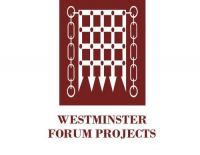Introduction of compulsory RSE at secondary level and relationships education in primary schools
Countdown to Reservations End Date

Event Details
Description
This conference will discuss priorities and practicalities for the introduction of relationships and sex education in England’s schools - including how provision will be inspected and assessed.
It takes place with - from September - relationships education becoming compulsory in primary schools, and relationships and sex education becoming compulsory in secondary schools.
The discussion at a glance:
• implementation and inspection, including:
◦ recognising good provision of RSE within schools
◦ the wider role of the new inspection framework.
• the impact of COVID-19 on school preparation for compulsory teaching
◦ with Government recently announcing that schools can delay teaching to the summer term if they are not prepared or wish to carry out phased delivery.
The context at a glance:
• Updated implementation guidance for 2020-21 - encouraging teaching to start in September and permitting schools that are not ready to delay teaching until the summer term
• The new inspection framework which places a focus on personal development and preparing children for modern life
• Development of training modules to support the teaching of the new curriculum - including for teaching mental wellbeing
• Extra mental health support and resources given to teachers for supporting pupils during the pandemic.
Key issues for discussion:
Managing implementation
• practicalities - the phased delivery of RSE and coping with challenges presented by COVID-19 for preparations, engagement activities and development of school policies
• phased implementation - with schools being encouraged to prioritise the teaching of mental health and wellbeing, and supporting the wellbeing of others
• the pandemic - the impact on delivery of mental health and wellbeing teaching and support within schools - including :
• training for teachers - to support delivery of lessons on mental health, and priorities for developing a new training module for teaching mental wellbeing
• online safety - effective communication to children on ways to keep safe online, particularly following increased use of online materials during the pandemic.
Health education, inclusivity and parental engagement
• awareness - strategies for the supporting young people in sexual and reproductive health
• curriculum implementation - within primary and secondary schools, including:
◦ development of individual school policies
◦ involving the school community
◦ use of the flexibility that schools have in their approach to delivering RSE
◦ meeting requirements and guidance priorities for successful delivery
• best practice and using expertise - learning from effective strategies, and involvement of sexual and reproductive health experts within the development of the curriculum
• faith schools - delivery of RSE in line with government guidance
• LGBT and diverse relationships - effective communication with pupils, with a new focus on diversity within the guidance for relationships education
• parental engagement and support for conversations outside school hours - as well as being encouraged to be involved within the development of school policies on RSE.
Training to deliver RSE
• priorities - training and developing effective teaching strategies for the different topic areas within RSE,
• teacher confidence in lesson delivery - with a series of 14 training modules being developed as a support for teachers delivering the new curriculum
• local authorities - their role in RSE training provision across local areas and supporting schools deliver the new curriculum.
Inspection
Priorities for how the new RSE curriculum will be inspected within schools when Ofsted return to full inspections from next January:
• the new inspection framework - with a focus on personal development, and preparing children for modern life
• quality - strategies for developing and maintaining a good standard of RSE for children
• assessing delivery - how good RSE provision will be recognised
• minimising unwarranted variation - how full coverage of RSE across schools in England can be achieved.
The agenda:
• Implementing compulsory Relationships and Sex Education (RSE), priority content areas for 2020-21, and managing the impact of COVID-19 on delivery
• The importance of integrating health education with Relationships and RSE within a broader programme as part of a ‘recovery curriculum’
• Promoting awareness of child safety online following lockdown and school closures
• Delivering mental health and wellbeing teaching now and into the future
• Implementing the phased delivery of RSE and tackling challenges presented by COVID-19
• Strategies for young people’s sexual and reproductive health awareness
• Implementing the RSE curriculum within primary and secondary schools, engagement with parents on policy development and delivery, and taking account of inclusivity and faith considerations
• Priorities for training, teacher support, and effective teaching strategies for the delivery of RSE
• Recognising good provision of RSE within schools and the wider role of the new inspection framework.
Policy officials attending:
These forums are known for attracting strong interest from policymakers and stakeholders. Places have been reserved by parliamentary pass-holders from the House of Commons Library, and officials from the Department for Education and the Ministry of Justice.
This is a full-scale conference taking place online:
• full, four-hour programme including comfort breaks - you’ll also get a full recording to refer back to
• information-rich discussion involving key policymakers and stakeholders
• conference materials provided in advance, including speaker biographies
• speakers presenting via webcam, accompanied by slides if they wish, using the Cisco WebEx professional online conference platform (easy for delegates - full details will be provided)
• opportunities for live delegate questions and comments with all speakers
• a recording of the addresses, all slides cleared by speakers, and further materials, is made available to all delegates afterwards as a permanent record of the proceedings
• delegates are able to add their own written comments and articles following the conference, to be distributed to all attendees and more widely
• networking too - there will be opportunities for delegates to e-meet and interact.
Full information and guidance on how to take part will be sent to delegates before the conference.

